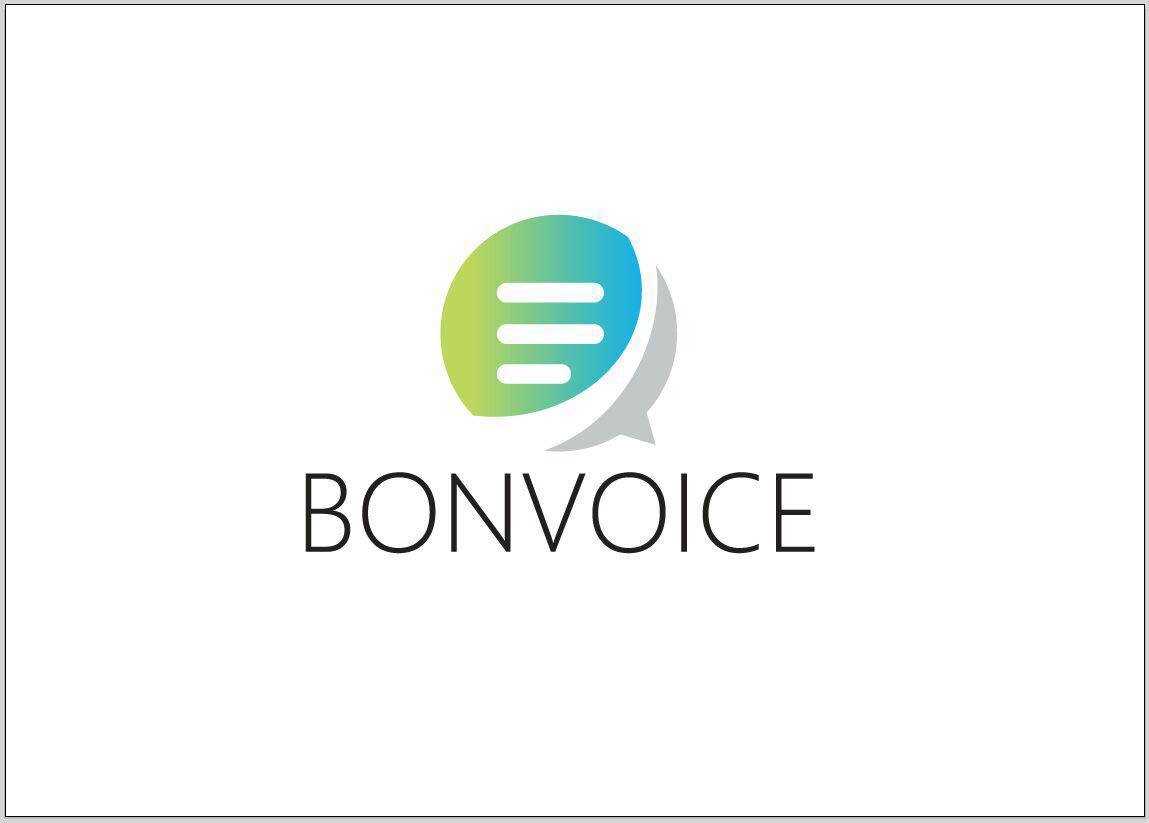Yes, IVR software may be accessed from different devices and platforms. It is meant to work fluidly across multiple platforms, including desktops, laptops, tablets, and smartphones. Users can access the IVR system from any device with a stable internet connection. This provides flexibility and convenience, making it easier for businesses to meet their consumers' demands regardless of device or platform preference.
List of Best IVR Software
IVR GURU is a Cloud telephony solution that empowers businesses to succeed. Our innovative services are tailored to elevate your business potential and give you the assurance to excel. With our affordable yet robust features, increase your reach and...Read More IVR GURU
Asterisk - a communication solution to revolutionize your communication abilities. Unlock advanced features such as top-notch voice and video calling, text messaging, text-to-speech conversations, call monitoring, and caller ID blocking for seamless...Read More Asterisk
Dialics is a top-notch inbound call tracking solution specifically created for skilled Pay Per Call Marketers. Our software leverages cutting-edge cloud technology to effectively handle call attributions, recording, and routing. With Dialics, busines...Read More Dialics
Go2Market IVR is a IVR system that can be tailored to meet your unique needs. Our fully hosted solution streamlines call management through advanced features including intelligent call tracking, routing, and recording. Boost productivity and enhance...Read More Go2Market IVR
Bonvoice is a IVR software solution for businesses of all sizes. Our cloud-based platform offers a user-friendly experience with customizable options and affordable packages. Say goodbye to hidden costs and improve your communication system with Bonv...Read More Bonvoice
Go2Market Voice Broadcasting - the perfect tool for connecting with your audience using authentic voice messages. Our advanced platform enables you to effortlessly send pre-recorded messages to a wide audience, increasing your reach and creating a mo...Read More Go2Market Voice Broadcasting
Cozy Vision IVR is a solution for streamlining repetitive inbound calls. Increase productivity by automating tasks such as retrieving account information, providing flight details, updating records, generating new passwords or pins, and processing tr...Read More Cozy Vision IVR
TekIVR is a IVR solution for Windows. Based on RFC 3261 SIP, it boasts a user-friendly interface and a built-in scenario editor, making it simple to design and personalize your own IVR scripts. Streamline your communication and optimize your response...Read More TekIVR
Aria Telecom is a provider in India, known for its cutting-edge call center, IVR, and predictive dialer software. Our comprehensive software range consists of IVRS, Voice Logger, Call Recording, ACD, and CRM systems, developed and tailored to meet th...Read More Aria Telecom
Experience the power and efficiency of Genesys Cloud is a Call Center Software for Enterprises, SMEs, and StartUps. This comprehensive solution, available on web and Android, includes a Blended Call Center, Call Logging, Call Recording, and other adv...Read More Genesys Cloud
TENIOS Voice API solution for seamless integration of advanced voice applications into your communication systems. This powerful tool offers features such as Text-to-Speech and Automatic Speech Recognition to enhance customer interactions and streaml...Read More TENIOS Voice API
Learn More About IVR Software
- What Is IVR Software?
- What Are The Recent Trends In IVR Software?
- Benefits Of Using IVR Software
- Important Factors To Consider While Purchasing IVR Software?
- What Are The Key Features To Look For In IVR Software?
- Why Do Businesses Need IVR Software?
- How Much Time Is Required To Implement IVR Software?
- What Is The Level Of Customization Available In IVR Software?
- Which Industries Can Benefit The Most From IVR Software?
- Conclusion
What Is IVR Software?
IVR (Interactive Voice Response) software is a telephony system that allows customers to engage with a computer over the phone. It guides callers through a sequence of selections and collects essential information by using pre-recorded speech prompts, a touch-tone keypad, or voice commands. One of the key functions of IVR software is to automate and streamline customer interactions by processing inquiries, collecting data, and routing calls to the right department or agent based on the caller's input. This lowers the requirement for human involvement and improves the process efficiency.
IVR software is extremely adaptable and can be connected with other corporate systems, such as customer relationship management (CRM) and help desk software, to create a more consistent experience and improve customer service. It can also be altered to reflect a company's branding and special requirements. In addition to speeding customer contacts, IVR software provides data collection and analysis capabilities.
It can collect data such as caller demographics, call volume, and call duration, which can help businesses understand customer behavior and enhance their services accordingly. Some IVR systems additionally include advanced features such as speech recognition, natural language processing, and text-to-speech capabilities, allowing callers to engage with the system through their voice. When choosing IVR software, seek for a user-friendly interface, adaptability, and scalability. It should be simple to set up and administer, with several customization options and the ability to handle a large volume of calls.
What Are The Recent Trends In IVR Software?
In recent years, the use of IVR (Interactive Voice Response) software has seen a rapid increase due to its numerous benefits for businesses. IVR software has evolved from a simple automated phone system to a sophisticated tool that can handle a variety of customer interactions.
To keep up with the changing needs of businesses and consumers, the following are some of the latest trends in IVR software:
1. Integration With AI And Chatbots: With the rise of artificial intelligence (AI) and chatbots, IVR systems have also begun incorporating these technologies to enhance the customer experience. This allows for more natural and personalized interactions with customers, resulting in increased customer satisfaction.
2. Omni-Channel Capabilities: IVR software is now equipped with the ability to handle customer communication across multiple channels, such as phone, email, text, and social media. This provides a seamless experience for customers and allows for faster issue resolution.
3. Personalization: IVR systems are now capable of using customer data to personalize interactions and provide tailored solutions to their needs. This not only improves customer satisfaction but also increases the efficiency of the IVR system.
4. Self-Service Options: Many businesses are now leveraging IVR software to offer self-service options to customers. This allows customers to quickly and easily handle simple inquiries, freeing up agents to handle more complex issues.
5. Multi-Language Support: IVR software can now support multiple languages, catering to the diverse customer base of businesses. This helps in providing a better experience for non-native speakers and improving overall customer satisfaction.
6. Integration With CRM Systems: Integration with customer relationship management (CRM) systems allows IVR software to access customer data and provide a more personalized experience. This also helps in streamlining data management and improving the overall customer experience.
7. Cloud-Based Solutions: Cloud-based IVR solutions are becoming increasingly popular due to their flexibility, scalability, and cost-effectiveness. They also offer the advantage of being accessible from anywhere, making it easier for businesses to manage their IVR systems.
Benefits Of Using IVR Software
IVR (Interactive Voice Response) software is a valuable tool for businesses looking to improve their customer service and overall efficiency. This technology uses pre-recorded messages and touch-tone or voice recognition to interact with customers over the phone.
We will explore the various benefits of using IVR software and how it can enhance your business operations.
1. Streamlined Call Routing: IVR software allows you to create a personalized call flow that directs callers to the appropriate department or agent, based on their needs. This eliminates the need for operators to manually transfer calls, reducing wait times and improving customer satisfaction.
2. 24/7 Availability: With IVR software, customers can access your business services at any time, even outside of business hours. This round-the-clock availability can lead to increased sales and customer loyalty, as well as reduced workload for your staff.
3. Cost-Effective: Implementing an IVR system can significantly reduce your operational costs by automating routine tasks and freeing up your staff’s time for more complex tasks. It also eliminates the need for a large call center operation, as the software can handle a high volume of calls.
4. Customizable And Scalable: IVR software can be customized to fit your business’s specific needs and can easily adapt to changes in your operations. As your business grows, the system can scale accordingly, without significant costs or disruptions.
5. Efficient Call Management: IVR software can handle a large number of incoming calls simultaneously, without any delays or errors. This ensures a smooth and efficient call management process, improving overall customer service and reducing wait times.
6. Personalized Customer Experience: By tailoring the IVR prompts and messages, you can create a personalized customer experience that reflects your brand and values. This can help in building a positive relationship with your customers and promoting your brand image.
7. Data Collection And Analysis: IVR systems can collect valuable customer data, such as call volume, call length, and customers’ responses to prompts. This information can be analyzed to identify trends, improve customer service, and drive business decisions.
8. Integration With Other Systems: IVR software can integrate with other business systems, such as CRM and helpdesk platforms, to provide a seamless experience for both customers and agents. This integration can further improve call routing and data collection, leading to better customer service.
Important Factors To Consider While Purchasing IVR Software?
When purchasing IVR (Interactive Voice Response) software, it is critical to evaluate many key factors to guarantee that you obtain the optimum solution for your company's requirements. There are various factors to consider when choosing the best IVR software for your firm, including functionality, adaptability, affordability, and customer support.
Here are the key points to keep in mind when you make your purchase decision:
1. Purpose And Functionality: Before investing in any IVR software, you must first define the system's purpose for your firm. Do you need it for customer support, sales, or automation? Look for capabilities like call routing, recording, and integration with CRM or other tools that meet your needs.
2. Scalability: As your firm expands, so will your call volume. As a result, it is critical to select IVR software that is scalable and capable of handling increased call volumes while maintaining quality and performance.
3. Usability And Customization: A user-friendly IVR system that can be quickly tailored to your individual requirements is essential. Look for software that has a simple interface and drag-and-drop functionality, allowing you to make changes and updates without requiring any technical knowledge.
4. Integration Capabilities: Your IVR software should be able to work seamlessly with your current phone system and other software applications. This will not only increase the effectiveness of your IVR, but also the client experience.
5. Multi-Channel Support: In today's digital age, customers want to be able to contact businesses via a variety of channels, such as phone, email, and chat. Make sure the IVR software you chose supports numerous channels to meet your consumers' needs.
6. Analytics And Reporting: The ideal IVR software should include thorough analytics and reporting capabilities that provide insights into call volume, wait times, agent performance, and other factors. This information can assist you in making data-driven decisions that will improve your IVR and overall business performance.
7. Pricing And Cost: IVR software prices vary, therefore it is critical to pick a solution that meets your budget and provides good value for money. Consider the initial setup expenses, monthly or annual fees, and any additional charges for add-on services or updates.
8. Customer Support: If you have any problems or inquiries, you should be able to reach out to a trusted customer service representative. Look for IVR software vendors who give 24/7 customer assistance across several channels like as phone, email, and live chat. When selecting IVR software, consider these crucial considerations to ensure that you make an informed selection and select a solution that fulfills your business goals while providing a seamless experience for your consumers.
What Are The Key Features To Look For In IVR Software?
When looking for the best IVR software for your business, it's critical to consider a variety of vital characteristics to ensure that you're making an informed purchase.
We'll walk you through the key features to look for in IVR software, allowing you to make an informed decision for your organization.
1. Call Routing: The call routing feature is an important part of IVR software since it allows callers to be quickly guided to the appropriate department or agent. It allows organizations to establish bespoke call flows, route calls based on predetermined rules, and deliver a consistent experience for callers.
2. Interactive Voice Response(IVR): As the name implies, this feature allows callers to engage with the IVR system via voice, touch-tone input, or both. IVR systems can handle a variety of services, including information retrieval, basic question answering, and transaction processing, saving time for both agents and customers.
3. Multichannel Support: In today's fast-paced world, clients can contact businesses through a variety of channels, including phone, email, and chat. IVR software with multichannel support lets organizations to provide consistent and personalized customer experiences across several channels, hence enhancing satisfaction and retention.
4. Voice Recognition: Voice recognition technology allows an IVR system to recognize and reply to a customer's voice automatically. This functionality eliminates the need for users to enter a PIN or say a specific phrase, making the IVR experience more efficient and convenient.
5. CRM Integration: CRM connection enables the IVR system to retrieve relevant data from the customer's profile, providing call center agents with a comprehensive view of the customer's history, preferences, and previous interactions. This functionality allows agents to give more tailored and efficient service to their consumers.
6. Analysis And Reporting: IVR software with comprehensive analytics and reporting capabilities gives firms significant insights into their call center performance. It enables organizations to track critical indicators including as call volume, wait times, and caller demographics in order to make data-driven decisions and improve the customer experience.
7. Customization And Scalability: A customized and adaptable IVR system may respond to your company's changing needs and growth. Look for software that allows you to add or remove features as your business grows and can manage a high volume of calls, providing a seamless client experience. By taking into account these crucial aspects, you can choose IVR software that not only fulfills your current requirements but also has the potential for future growth and success. Evaluate your business needs and compare several IVR software choices to determine the best fit for your company.
Why Do Businesses Need IVR Software?
Every firm, regardless of size or industry, strives to deliver exceptional customer service while streamlining its operations. This is where the IVR (Interactive Voice Response) software comes in. IVR software is a telephony system that allows businesses to communicate with their customers using automated voice prompts and touch-tone keypad inputs. But, why do organizations want IVR software in the first place?
Here are the main reasons:
1. Improve The Customer Experience: In today's fast-paced environment, customers demand rapid and efficient service. IVR software enables organizations to handle a high volume of consumer calls 24 hours a day, seven days a week, offering immediate support and eliminating hold times. IVR software, which provides tailored and automated responses, can enhance the overall customer experience.
2. A Cost-Effective Solution: IVR software removes the need for a big support staff. This means that corporations can reduce labor expenditures and reallocate resources elsewhere. IVR software minimizes the amount of call transfers and human errors, resulting in long-term cost benefits.
3. Personalized Service: IVR software can be configured to greet clients by name, deliver pertinent information, and answer their issues. This level of customisation can help clients feel valued and increase their overall satisfaction with the company.
4. Efficient Call Routing: IVR software employs powerful algorithms to direct calls to the most appropriate department or representative based on the customer's input. This guarantees that clients are directed to the appropriate individual who can respond to their needs promptly and efficiently, resulting in a more efficient call handling procedure.
5. Data Gathering And Analysis: IVR software can gather and save client information such as call history and demographics. Businesses can utilize this information to acquire insights into client behavior, preferences, and pain spots, allowing them to better their products and services.
6. Multi-Channel Support: In addition to phone conversations, modern IVR software supports email, text messages, and social media. This enables organizations to deliver a consistent customer experience across several platforms, hence enhancing customer happiness and retention.
How Much Time Is Required To Implement IVR Software?
The time required to develop IVR (Interactive Voice Response) software varies according to a number of factors. This can include the complexity of your organization's phone system, the size of your company, and the customization requirements for your IVR solution. The process of adopting IVR software might range from a few days to a few weeks.
This can also be influenced by your team's responsiveness and the IVR provider's quality of support and training. To ensure a seamless and timely implementation, it is critical to have a thorough grasp of your company's objectives and goals. This will help you select the best IVR provider and create a successful deployment strategy. Before formally launching your IVR system, make sure to allow ample time for testing and troubleshooting.
This will allow you to spot any faults and make necessary changes before your consumers begin engaging with the system. Overall, the time necessary to implement IVR software will vary, but with adequate planning and a dependable provider, you can expect a successful and efficient implementation that matches your business requirements.
What Is The Level Of Customization Available In IVR Software?
IVR (Interactive Voice Response) software is an essential tool for firms looking to streamline their customer service and call management procedures. One of the most important elements to consider when selecting an IVR software is the level of customization available. The flexibility to tailor the IVR system to your individual requirements and preferences is critical for providing a seamless caller experience and increasing overall customer satisfaction. So, what level of customisation is available in IVR software?
Let's have a closer look.
1. Customizable Call Flows: IVR software enables you to establish custom call flows, which are the steps that a caller will take when engaging with the automated system. This offers features like as routing calls to other departments, offering self-service, or connecting with a live agent. A good IVR software will include a visual call flow editor that allows you to drag and drop different call flow elements and adapt them to meet your company's specific needs.
2. Personalized Greetings And Prompts: The IVR system is generally your clients' initial point of contact, so it should represent your brand's voice and personality. With customizable greetings and prompts, you can give your company a more personalized and professional image. You can even customize greetings and messages for different departments or times of the day, such as after hours or on vacations.
3. Integration With Existing Systems: Each organization has its own collection of systems and tools that serve various objectives. IVR software with integration features enables you to link your existing systems, such as customer relationship management (CRM) or ticketing software. This allows you to give a more personalized experience to your consumers by accessing their information and call history when they use the IVR system.
4. Customizable Reporting And Analytics: IVR software, like any other business tool, relies heavily on data to make informed decisions. A decent IVR system will have customized reporting and Analytics capabilities that allow you to track and evaluate the success of your IVR system. You can personalize the reports based on your company's specific KPIs and use the information to improve the performance of your IVR systems.
5. Self-Service Choices: One of the primary advantages of IVR software is the ability to offer self-service choices to your consumers. This not only relieves the stress on your customer care workers, but also enables your consumers to obtain the information they require quickly and efficiently. IVR software with configurable self-service options lets you to create menus and options that are tailored to your company's and customers' specific needs.
Which Industries Can Benefit The Most From IVR Software?
When it comes to streamlining communication processes and improving overall efficiency, there is no denying the impact of IVR software. Interactive Voice Response, or IVR, is a technology that allows callers to interact with a computerized system through voice or keypad inputs, without the need for a human operator. This powerful tool has become increasingly popular across a wide range of industries, providing businesses with a cost-effective and automated solution for handling customer calls.
Let's explore, which industries can benefit the most from IVR software and why.
1. Healthcare: With the healthcare industry facing a constant flow of patient calls, IVR software can be a game-changer. By allowing patients to schedule appointments, check lab results, and refill prescriptions via IVR, healthcare providers can save time and resources while ensuring a better patient experience.
2. Banking And Finance: The banking sector deals with a high volume of customer calls daily, ranging from basic account inquiries to more complex transactions. IVR software enables banks to automate routine tasks, such as balance inquiries and fund transfers, while freeing up human operators to handle more complex queries.
3. E-commerce: IVR software is a valuable tool for e-commerce companies, particularly during peak seasons. By implementing IVR, businesses can handle a large influx of customer calls, process orders, and provide shipping updates, without the need for additional staff.
4. Travel And Hospitality: The travel and hospitality industry can also benefit greatly from IVR software. By allowing customers to make reservations, check flight status, and request room service through IVR, hotels and airlines can improve customer satisfaction and reduce wait times.
5. Retail: In the fast-paced retail industry, time is of the essence. IVR software can help retailers handle heavy call volumes during sales, track customer orders, and provide product information, all while reducing wait times and improving customer service.
6. Telecommunications: IVR software is a must-have for telecommunications companies. By using IVR to handle billing inquiries, service upgrades, and technical support, these companies can reduce call volumes and improve customer service levels.
7. Government Agencies: Government agencies typically receive a large number of calls from citizens daily. IVR software can assist with tasks such as tax filing, vehicle registration, and permit applications, making the process more efficient and less time-consuming for both citizens and government employees.
Conclusion
To summarize, selecting the correct IVR software for your organization is critical for increasing efficiency, improving customer experience, and overall productivity. Before making a decision, significant variables to examine are features, cost, scalability, and integration possibilities. Keep in mind your company's specific requirements and goals, as well as your team's preferences and technical expertise.
Before making a purchase, take advantage of free trials and demonstrations to gain firsthand familiarity with the product and its features. Seek suggestions from reputable sources and study customer reviews to gain vital insights. Additionally, ensure that you properly grasp the software's terms and conditions, as well as the quality of customer assistance given.
Finally, the correct IVR software may simplify and streamline your communication procedures, resulting in more customer satisfaction and greater business success. By carefully weighing all choices and selecting a dependable and user-friendly solution, you can improve your business operations and stay ahead of the competition in today's continuously changing market.
IVR Software FAQ's
Can IVR Software Be Accessed Across Multiple Devices And Platforms?
Is IVR Software Future-Proof And Adaptable To Emerging Technologies Like AI, Blockchain Or IoT?
Yes, most modern IVR software is intended to be future-proof and adaptable to new technologies like AI, blockchain, and IoT. These technologies are always improving, and IVR software vendors must upgrade their systems to stay current and give the best possible client experience.
With advanced features such as natural language processing and connectivity with other systems, IVR software may smoothly incorporate developing technologies to improve functionality and satisfy the changing needs of organizations and customers.
Is There A Free Trial Offered To Assess IVR Software Before Committing?
Yes, several IVR software providers provide free trials to help customers evaluate their products before making a purchase decision. These trials normally last a set amount of time and allow users to test the software's features and operation. This might help you assess if the software fulfills your specific business goals and if it is worth investing in over time.
Does IVR Software Offer Data Security Features And Meet Regulatory Compliance Standards?
Yes, IVR software includes strong data security features like encryption and secure data transfer protocols to safeguard critical client information. It also meets a number of legal compliance criteria, including the Payment Card Industry Data Security Standard (PCI DSS), to protect the confidentiality, integrity, and availability of consumer data. This helps organizations stay compliant and protect client data from any security breaches.
Can IVR Software Integrate Seamlessly With Existing Tools And Platforms?
Yes, IVR software can be readily connected with existing tools and platforms, making it an adaptable and valuable asset to any business. With a wide range of APIs and plugins available, IVR software may seamlessly integrate with CRM systems, call center software, and even social media channels. This enables a more simplified and effective customer service experience, which increases productivity and overall happiness.













